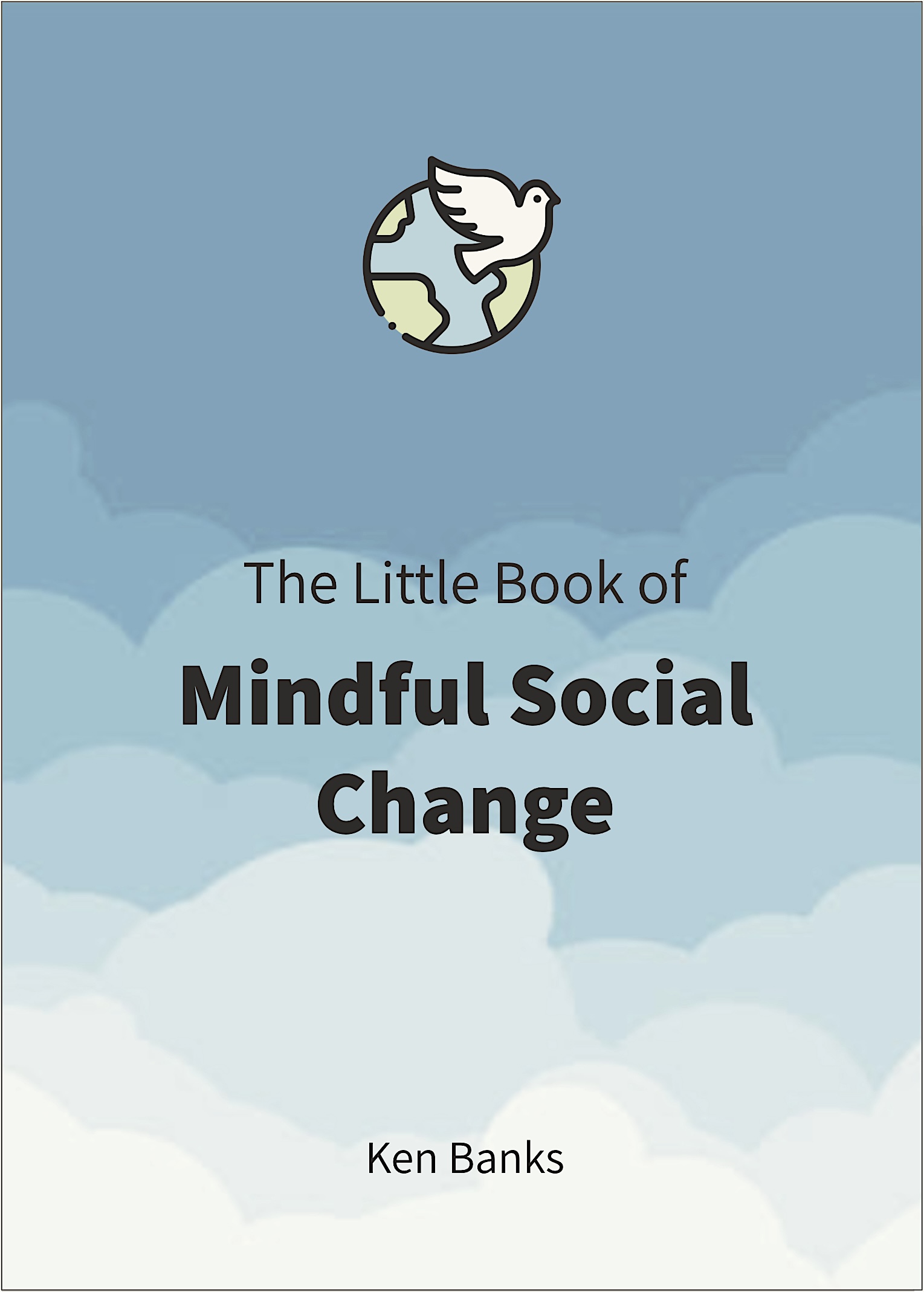It’s been nearly four years since I wrote my last book. Given I’m not a professional writer who makes a living from the art, that’s fine. But last week a book idea came to me out of nowhere, and in the spirit of not resting on my laurels I got to work on it straight away.
 The universe delivered and I published it yesterday. The Little Book of Mindful Social Change is the first time I’ve written down my philosophy to social change – ideas and strategies and behaviours learnt over many years in many places.
The universe delivered and I published it yesterday. The Little Book of Mindful Social Change is the first time I’ve written down my philosophy to social change – ideas and strategies and behaviours learnt over many years in many places.
If you care deeply, think carefully and wonder if helping might just add to the noise, this book is for you. It’s for people who believe deep down that change should be thoughtful, humane and grounded. Not rushed, performative or driven by ego.
Drawing on years of real-world experience with kiwanja.net and FrontlineSMS, the book looks at what actually makes a difference. And it’s not grand strategies or shiny tools but quiet adaptations, humility, deep listening and trust in local knowledge. The most meaningful impact often comes from letting go. Letting go of control, of certainty and of the need to be right.
Running through this short collection of observations is a gentle exploration of mindfulness, Buddhism and inner work, offering a steady counterbalance to the urgency and intensity that so often surround social change. The book speaks honestly about the risks of good intentions, the harm that can come from moving too fast, and the importance of acting with care, respect, love and humility.
In the spirit of collaboration, friendship and inclusivity, the book is available as a free PDF here. It is also available on Amazon Kindle here, and will soon be available in paperback and hardback.


 When I did eventually do something impactful with FrontlineSMS, when I stepped back people assumed I’d got rich from it. After all, it was incredibly successful and had scaled to just about every country on earth. But the reality was very different. FrontlineSMS was always a free tool, it had no business model behind it, and when I stepped away there was no big pay day.
When I did eventually do something impactful with FrontlineSMS, when I stepped back people assumed I’d got rich from it. After all, it was incredibly successful and had scaled to just about every country on earth. But the reality was very different. FrontlineSMS was always a free tool, it had no business model behind it, and when I stepped away there was no big pay day. To do that I’m seeking a small amount of seed funding from a high-net-worth individual, an angel investor or a charitable foundation who sees both the urgent need and the enormous potential. The funding will give me six months to fully focus on building out the core concepts for the app and website, refreshing my coding skills, and preparing the platform for private beta release.
To do that I’m seeking a small amount of seed funding from a high-net-worth individual, an angel investor or a charitable foundation who sees both the urgent need and the enormous potential. The funding will give me six months to fully focus on building out the core concepts for the app and website, refreshing my coding skills, and preparing the platform for private beta release.